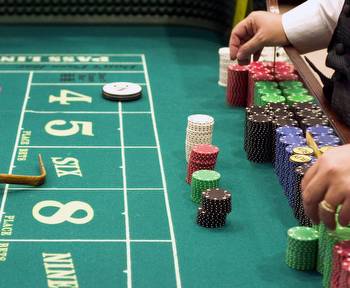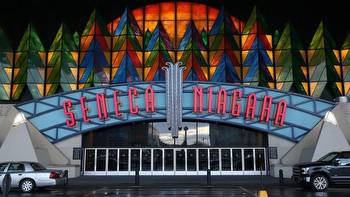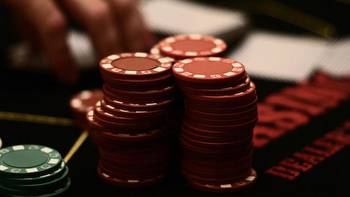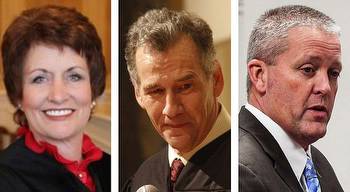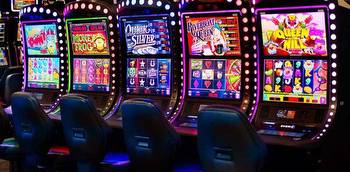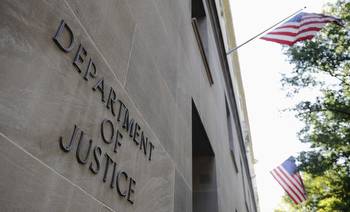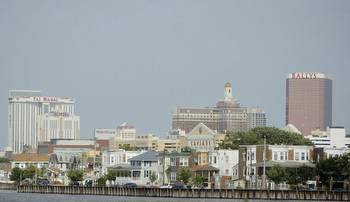Internet Gambling Hits the Jackpot in First Circuit

The Justice Department went bust-o Wednesday in its attempt to shut down online betting, including state lotteries.
BOSTON (CN) — The First Circuit handed a major victory to online gambling businesses Wednesday, rejecting the Justice Department’s 2018 effort to criminalize most of the industry and cost states billions of dollars in lottery revenue.
Online gambling surged in America a decade ago when the Justice Department announced that the 1961 law criminalizing the use of wire transmissions for gambling was limited to sports betting.
Private industry reacted by spending billions of dollars to develop online slot machine and bingo networks and internet-based systems to monitor gambling and transfer winnings. As private and tribal casinos got into the act, many state lotteries also developed online gaming systems.
But the department reversed course under the presidency of former casino magnate Donald Trump, saying that the 1961 law banned all online betting not just sports betting. Although the department hasn’t prosecuted anyone under the new paradigm — and it said in April 2019 that its ruling might or might not apply to state lotteries — the 2018 announcement cast a huge cloud over the industry and largely brought it to a standstill.
After today, however, online wagering is back in business.
“The lack of coherence in the government’s proposed reading” of the 1961 law “strains common sense,” U.S. Circuit Judge William Kayatta, an Obama appointee, wrote for the Boston-based court.
Kayatta noted that the 1961 law wasn’t perfectly clear because it sometimes specified that its provisions applied only to sports betting and other times left that part out. Concluding that Congress didn’t always spell that out because it was using “shorthand,” the panel called it the most natural reading, that the whole law applies just to sports betting.
New Hampshire’s Lottery Commission and a private contractor that handles the state’s online “iLottery” brought the underlying suit, which drew support from 19 other states, the District of Columbia and several gambling trade associations.
A federal judge ruled against the Justice Department in 2019, and the First Circuit upheld that verdict today after a June 2020 hearing.
The court could have issued a narrow decision holding that the 1961 law didn’t apply to state lotteries, but instead it interpreted the law broadly to provide protection to private gambling companies as well.
Even a narrower ruling would have had a huge financial impact. Some 48 states and territories operate lotteries that generated more than $80 billion in revenue in 2017, the year before the Justice Department’s ruling. A growing portion of that revenue is attributable to internet wagering.
The New Hampshire iLottery is projected to raise between $6 million and $8 million for public education in fiscal 2021, officials said. The state also raises some $40 million a year by participating in multijurisdictional games such as Powerball.
In New Jersey, the state’s “iGaming” platform generated roughly a billion dollars in sales and $125 million in revenue from 2013 through 2016, according to its brief. And Pennsylvania told the court that it lost a billion dollars in revenue when it scaled back its online gaming infrastructure after the 2018 ruling.
Apart from the financial impact, some observers have worried that widespread online betting would increase the prevalence of compulsive gambling disorder. But Nathan Smith, a former program officer at the International Center for Responsible Gaming, which studies gambling disorders, said that’s not true.
“The first major study in 1979 found that about 1% of the population has a gambling problem, and despite all the changes since then, virtually every study since has found the same thing. It’s incredibly stable,” Smith said.
Smith added that gambling is virtually always available whether it’s legal or not. “I’d rather have regulated gambling than unregulated gambling,” he said.
Even though states such as Massachusetts use a significant amount of their gambling revenue for gambling disorder research and treatment, Smith noted, “when you have a local club with illegal slot machines in the back room, that’s not happening.”
A big question in the First Circuit case was whether the court could issue a decision at all given that the Justice Department announced in 2019 that its ruling didn’t necessarily apply to state lotteries. The department said that it would eventually rule on that question and if it found that state lotteries were affected, they would have 90 days to comply.
But Kayatta wrote that the threat was serious enough that the court had to step in now.
“A statewide operation integrating over a thousand retailers and multi-state relationships to produce almost $100 million in net revenue does not strike us as an operation that can be easily wound up in 90 days,” he wrote.
“Nor can a state legislature plan sensibly if such a relied-upon revenue stream finds itself suddenly subject to a three-month closure notice.”
Kayatta went on: “New Hampshire and its vendors should not have to operate under a dangling sword of indictment while DOJ purports to deliberate without end the purely legal question it had apparently already answered. … We cannot see why the plaintiffs should be forced to sit like Damocles while the government draws out its reconsideration.”
The Justice Department was supported by amicus briefs from the Coalition to Stop Internet Gambling and the National Association of Convenience Stores. Convenience stores could see their sales suffer considerably as a result of customers buying lottery tickets online.
The coalition’s brief warned that allowing online state lotteries that cross state lines “would create a race to the bottom in which the state with the laxest gaming regulations and most generous payouts would generate the most revenue from online gaming activities and effectively set internet gaming policy for the entire nation.”
Kayatta’s decision was joined by U.S. Circuit Judge Sandra Lynch, a Clinton appointee. U.S. Circuit Judge Juan Torruella, a Reagan appointee, participated in the oral argument but died in October.












